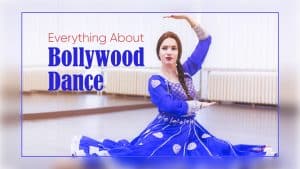
A Guide to Semi Classical Dance: The History and Basic
The art of semi classical dance is a very interesting topic. It’s a type of dance that has some similarities to classical but also incorporates elements from modern and folk dances. Semi-classical dance is a term that refers to an amalgamation of classical and contemporary styles. This type of dance, which has its roots in the postmodern era, emerged as a response to the need for more freedom when dancing. Modern dancers wanted to explore their creativity while using the classical technique. They liked the style of semi-classical dance.
Dances like semi-classical don’t have as many moves as classical dances. Dance is the art of moving your body and making movements. You do it at a certain speed with grace and expression. This dance form breaks the stylized structure in classical dance.
The steps and moves of semi-classical dance are not as complex or intricate as pure classical forms. It is an art form that features extensive movements of your body while maintaining grace along with expressions and speed. This dance form breaks the stylized structure in classical dance.
Read ahead to know some fun facts about semi-classical dance:
- Semi-classical dance moves are always tied in with understanding the mind-body-soul connection. When you practice these dance styles, it is good for your brain. Your brain will remember things more if you do this. This will keep you in the present and mindful of the present moment.
- This type of dance teaches you to understand your body. It is also about understanding different rhythms and yourself. You will need to practice after the classes with your teacher because it is for you to learn these things. Above all, it has tied in with timing since that is the thing that you learn when you coordinate with rhythms.
Do you know about semi-classical dance mudras?
In semi-classical dance, there are gestures (called mudras) that tell a story. There are many different meanings for each gesture. You can use them to tell any story, but they should match the mood of the dance.
- Pataka: This is a hand mudra in which you keep your palms open. It translates to a cloud or forest.
- Shikhara: In this mudra you keep your fist closed but keep your thumb upright, like a thumbs-up sign.
- Chandrakala: This hand mudra is always made with a closed fist. Your thumb and index finger will stick out.
- Trishula: In this mudra, you only have to keep your index finger, middle finger and ring finger upright facing the sky.
- Tripataka: This hand mudra is always made with your hands open (fingers touching) and your ring finger is bending halfway down.
Do you want to learn semi-classical dance at home:
At Choreo N Concept, You Can Book Your Free Trial for Virtual Semi Classical Dance Batch. They present an excellent dance structure that joins the classical and modern dance touch. They train you with all of the “Mudras” or stances that make you a wizard of semi-old style dance. It’s a contemporary culture of traditional Indian classical dance, and they break this dance structure into different mixes and plan selective semi-classical styles for you.
Semi-classical dance is a type of dance that has some similarities to classical but also incorporates elements from modern and folk dances. Dances like semi-classical don’t have as many moves as classical dances, which are typically more stylized in their structure. If you’re looking for something different than ballet or other types of traditional ballroom dancing, this may be the perfect form for you! Join Choreo N Concept today if you want to learn about how we teach semi-classical dance to our students. We offer classes at both beginner and intermediate levels so there’s no need to worry whether or not your skill level will prohibit you from joining us–our instructors are here to help every step of the way!







